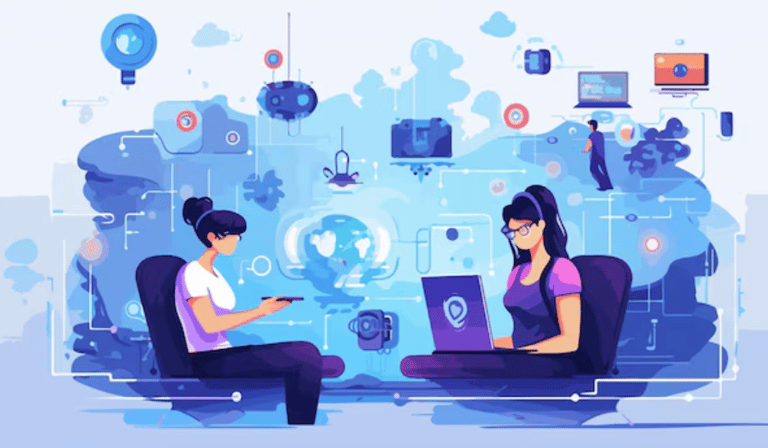Does AI Truly Enhance Learning or Create Dependence in Students?
Artificial Intelligence (AI) has become a revolutionary tool in many aspects of our lives, and this is reflected in the way students have integrated AI tools into their studies. Personally, I have used these technologies to organize ideas, practice programming concepts, and improve the clarity of my writing. However, since the use of these tools has become normalized, I have noticed that without proper use, AI can become a huge distraction, even putting at risk a student’s individual and critical thinking.
That is why I have developed some guidelines so that students can continue using new technologies without sacrificing their individuality.
When and How to Use AI in Academic Studies
Support, not replacement: Use AI consciously to generate examples on a topic, clarify doubts, or practice problems, without substituting the student’s own knowledge or submitting assignments created entirely by the tool.
Personal feedback: Turn to AI as a “critical reader” that can help review spelling or grammar mistakes, or even provide new ideas for developing a text, but never to write the entire document.
Transparency and acceptance: Acknowledge when AI has been used to assist in an academic assignment, so that honesty is maintained with professors and peers.
Organizational support: In college, organization is fundamental. AI tools can be used to create study schedules and work plans to help students balance their academic and personal lives.
Programming and technical subjects: Use AI as a guide to understand coding errors or practice with algorithm examples but ensure that the student writes and tests their own solutions.


Ethical Implications
Academic integrity: Presenting a text generated entirely by AI as one’s own can be considered plagiarism. Human authorship must be preserved, as it is essential for a student’s intellectual development.
Biases and limitations: AI reflects the data it was trained on, which may contain errors or biases. Therefore, it is crucial to critically read and verify the information provided by these tools.
Legal Considerations
Copyright: According to the U.S. Copyright Office, works created exclusively by AI cannot be registered because they lack human authorship (U.S. Copyright Office, 2023).
Human contribution: The law recognizes copyright protection only if there is significant human creative contribution (Thaler v. Vidal, 2023).
Personal practice: Avoid claiming full authorship of material produced solely by AI and always cite sources of information provided to the tool.
Artificial Intelligence can be a powerful ally for new generations, but it must be used responsibly, with ethics and honesty on the part of students. By following these guidelines, I can ensure that technology helps people grow without compromising the integrity of their academic or professional goals.
Sources
U.S. Copyright Office | U.S. Copyright Office
Website | U.S. Copyright Office, | https://www.copyright.gov
Common Mistakes Students Make in Their IA and How to Avoid Them
Website | RevisionDojo, 2025 | https://www.revisiondojo.com/blog/common-mistakes-students-make-in-their-ia-and-how-to-avoid-them
Website | https://digitalthriving.gse.harvard.edu/wp-content/uploads/2024/06/Teen-and-Young-Adult-Perspectives-on-Generative-AI.pdf
Developing AI Ethics in the Classroom
Website | 2025 | https://www.gse.harvard.edu/ideas/usable-knowledge/25/07/developing-ai-ethics-classroom
